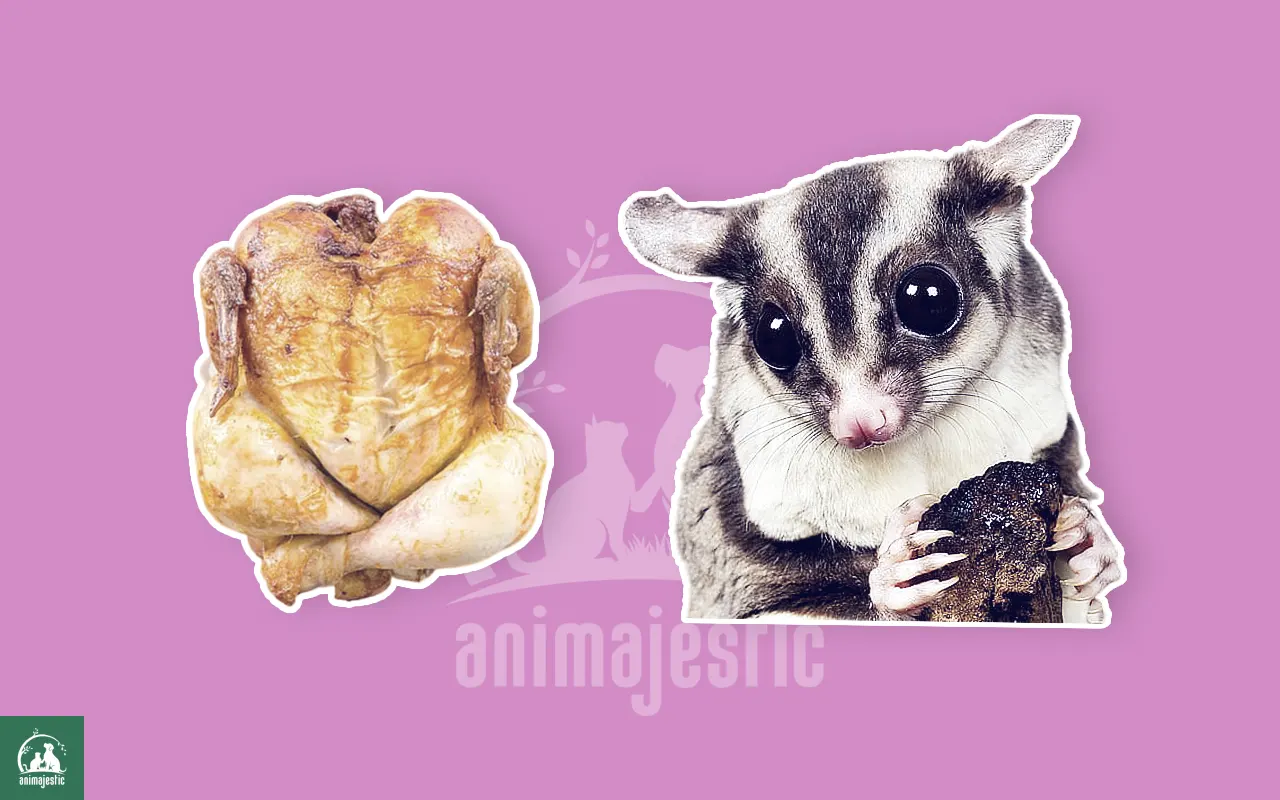Sugar gliders are omnivores, they consume a diverse range of foods in their natural habitat, including nectar, fruit, insects, and small vertebrates.
However, when it comes to domestic sugar gliders, responsible owners must be cautious about their pets’ diets to ensure they are providing the proper nutrients.
Another question we will be dealing with is whether sugar gliders eat turkey or not. So let us find out if turkey meat is a suitable food for them.
Nutritional Requirements of Sugar Gliders
Before discussing whether sugar gliders can consume turkey, it’s essential to understand their nutritional requirements. Sugar gliders need a balanced diet to maintain their health, which should include:
Protein
Sugar gliders require a high-protein diet, with approximately 25-40% of their diet coming from protein sources. Insects, such as mealworms, crickets, and moths, are their primary source of protein in the wild. Protein is essential for growth, tissue repair, and maintaining overall health.
Carbohydrates and Sugars
Sugar gliders have a high metabolism and require carbohydrates and sugars for energy. Fruits, vegetables, and nectar are their primary sources of carbohydrates in the wild. A sugar glider’s diet should consist of approximately 10-15% carbohydrates.
Fats
Fats are an essential component of a sugar glider’s diet, providing energy and aiding in the absorption of fat-soluble vitamins. In the wild, sugar gliders obtain fats from insects and seeds. A sugar glider’s diet should consist of approximately 5-10% fat.
Vitamins and Minerals
Sugar gliders need essential vitamins and minerals, such as calcium, phosphorus, and vitamin D for proper growth and development. Calcium is particularly crucial for preventing metabolic bone disease, a common health issue in sugar gliders. A balanced diet should provide an appropriate ratio of calcium to phosphorus, ideally around 2:1.
Can Sugar Gliders Eat Turkey?
Now that we understand the nutritional requirements of sugar gliders, let’s address the question of whether they can eat turkey. Turkey is a lean meat, high in protein, and low in fat. In moderation, turkey can be a suitable protein source for sugar gliders. However, there are a few important factors to consider:
- Cooking Method: Turkey should be cooked thoroughly and without any seasoning, oils, or butter. Sugar gliders are sensitive to salt and other additives, which can be harmful to their health. Always provide plain, cooked turkey without any additional ingredients.
- Portion Size: Turkey should only be a small part of a sugar glider’s diet. It should not replace their primary protein source, insects, as insects provide additional nutrients, such as chitin, which are essential for sugar gliders. Offer turkey as an occasional treat or supplement to their regular diet.
- Boneless Turkey: Make sure to remove any bones from the turkey before feeding it to your sugar glider. Bones can pose a choking hazard and may cause injury if ingested.
- Nutritional Balance: Remember that sugar gliders require a balanced diet. While turkey can provide protein, it should be combined with other food sources, such as fruits, vegetables, and insects, to meet their nutritional needs.
Creating a Balanced Diet for Your Sugar Glider
To ensure your sugar glider receives a balanced diet, consider the following guidelines:
- Primary Protein Source: Insects should remain the primary protein source for your sugar glider. Offer a variety of insects, such as mealworms, crickets, and moths, to provide a range of nutrients.
- Fruits and Vegetables: Provide a variety of fruits and vegetables to supply essential vitamins, minerals, and carbohydrates. Some suitable options include apples, pears, grapes, melons, sweet potatoes, and leafy greens. Avoid feeding high-oxalate vegetables, such as spinach and kale, as they can interfere with calcium absorption.
- Supplements: Calcium and vitamin D supplements may be necessary to ensure your sugar glider receives adequate amounts of these essential nutrients. Consult with a veterinarian to determine the appropriate supplementation for your pet.
- Treats: Occasional treats, such as cooked turkey, can be offered in small quantities to add variety to your sugar glider’s diet. However, treats should not make up more than 10% of their total diet.
So in conclusion, sugar gliders can eat turkey as an occasional treat or supplement to their diet. Ensure the turkey is cooked without any additives and offered in small, boneless pieces. However, it’s essential to remember that turkey should not replace insects as the primary protein source in a sugar glider’s diet.
Always consult with a veterinarian or an experienced sugar glider caretaker if you have any concerns about your pet’s diet and nutritional needs. By providing a balanced diet, you can ensure your sugar glider remains sound and healthy.
